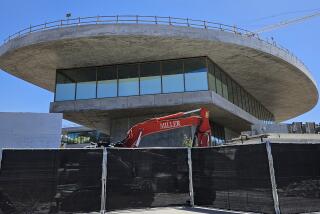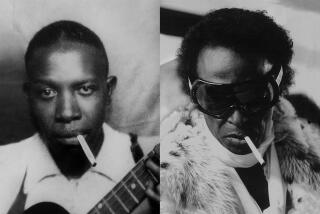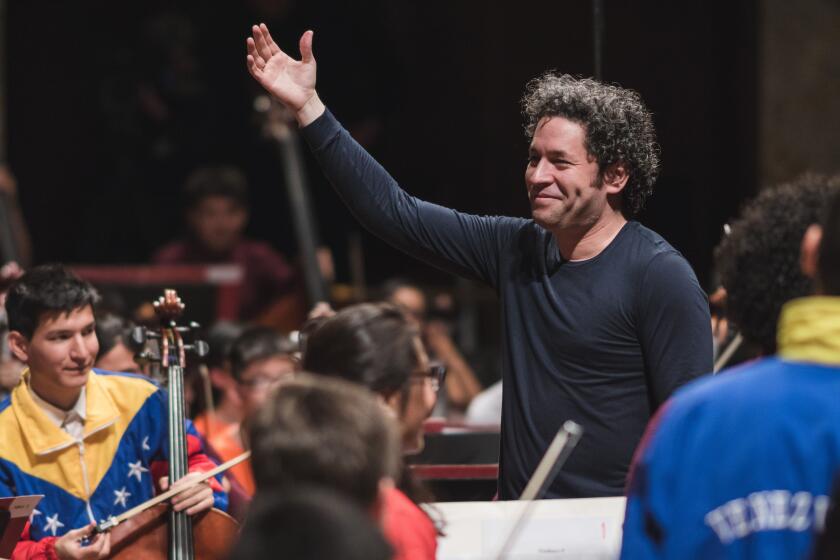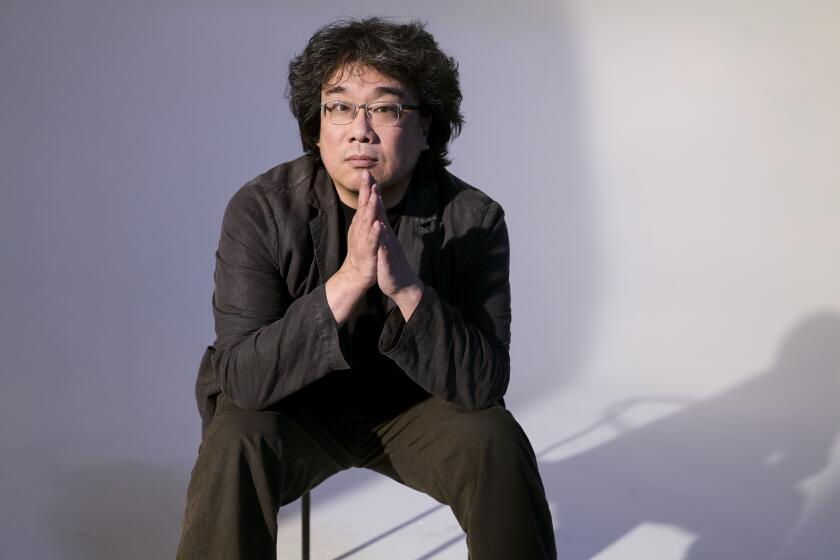Jeffrey Deitch resigns as head of L.A. Museum of Contemporary Art
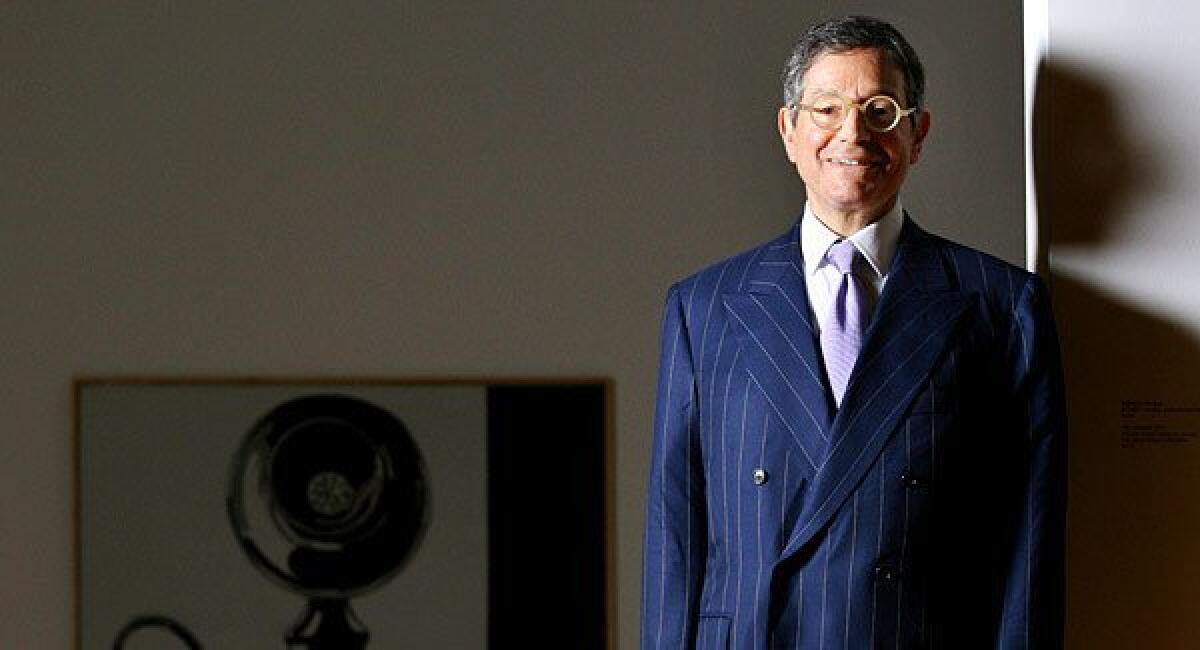
- Share via
Jeffrey Deitch has made it official: He’ll be stepping down after a stormy three years as director of L.A.’s Museum of Contemporary Art. The MOCA board said it had launched a search for his successor.
Deitch told the board of his decision to leave at its meeting Wednesday, according to a MOCA statement. “He will stay on to ensure a smooth transition and the successful completion” of a campaign begun in March to boost MOCA’s endowment to $100 million, the statement said.
The statement said the campaign is “expected to close this fall.” MOCA said this spring it had $75 million in pledges, but provided no update Wednesday.
GRAPHIC: MOCA’s relationship with Jeffrey Deitch
It was not immediately clear whether Deitch, whose resignation comes slightly more than three years into his five-year contract, has committed to stay until a new director is on the job, or only until the endowment campaign is done.
FOR THE RECORD:
Jeffrey Deitch: An article in the July 25 LATExtra section about the search for a successor to Jeffrey Deitch as director of the Museum of Contemporary Art referred to Charles Young as a former UC chancellor. Young is a former UCLA chancellor.
MOCA said it had formed a search committee with three leaders: Maria Bell and David Johnson, who co-chair MOCA’s board, and Joel Wachs, a former Los Angeles City Council member. Wachs is now president of the New York City-based Andy Warhol Foundation for the Visual Arts, which issues millions of dollars in annual grants to museums and other nonprofit art groups.
The announcement of Deitch’s resignation came with words of praise from the MOCA board’s co-chairs.
“As colleagues, friends and great admirers of Jeffrey Deitch’s talent, we respect his decision and thank him for his tremendous dedication,” Johnson said. “His efforts have helped to solidify MOCA’s financial stability while changing the way Angelenos, and those around the world, engage with contemporary art.”
As a leader in the search for Deitch’s successor, Wachs is no newcomer to MOCA.
As the City Council president in the early 1980s, Wachs negotiated the long-term lease under which MOCA pays $1 a year to occupy the cavernous city-owned former warehouse and police car repair building in downtown’s Little Tokyo that is now known as the Geffen Contemporary. After a remodeling by architect Frank Gehry, it opened in 1983 as MOCA’s first exhibition space.
One unusual condition Wachs has said he insisted upon was a place for L.A.’s mayor and City Council president on MOCA’s board. Wachs served on the board himself, and Mayor Eric Garcetti and City Council President Herb Wesson are now board members.
Deitch, who took over as museum director in June 2010, was a controversial choice because he didn’t come from nonprofit museum or academic ranks. He had won respect as a successful New York City art dealer whose sales helped him float an adventurous program of exhibitions at his Deitch Projects gallery.
Some of the exhibitions Deitch brought to MOCA proved divisive, with some observers fearing that the museum was tilting too much toward the pop culture emphasis he’d pioneered at his gallery.
PHOTOS: Arts and culture in pictures by The Times
Being a flashpoint for debate can be healthy at a museum, but money also has been a problem during Deitch’s MOCA tenure.
He took over the top job soon after MOCA survived a financial near-meltdown. In 2008, years of spending money from its endowment and plunging financial markets put it on the edge of collapse. After a rescue by billionaire art patron Eli Broad, an interim director, former UC Chancellor Charles Young, saw the museum through austerity measures and put it on a course to a stronger financial position.
Public filings reflecting Deitch’s first two years on the job showed a steep drop in fundraising from what Young had been able to help engineer.
During Deitch’s recently completed third fiscal year, the museum’s budget fell to $14.3 million — the lowest in actual dollars since the late 1990s, and 28% lower with inflation taken into account.
One key source of MOCA revenue will soon run out. Broad’s 2008 bailout pledge called for $15 million over five years to help fund exhibitions. The second-to-last quarterly payment of $750,000 was due July 1, and the last one is due Oct. 1.
MOCA’s ability to stage significant exhibits is also a question mark. The museum had five curators when Deitch arrived; now it has two. Art museums often schedule exhibitions far in advance, but as of Wednesday MOCA listed only one show beyond the four now running at its three venues — a retrospective on the career of Los Angeles artist Mike Kelley, due to open next March.
MOCA also announced Wednesday that real estate investor Fred Sands will be its board president, with Eugenio Lopez, Lillian Lovelace and Maurice Marciano becoming vice chairs. Marciano, a co-founder of the Guess apparel company, joined the board last year. The others have been MOCA trustees for at least eight years. Sands gave $2 million to the museum in 2009, and the other three were named in April among MOCA supporters who had pledged at least $1 million to the endowment campaign.
More to Read
The biggest entertainment stories
Get our big stories about Hollywood, film, television, music, arts, culture and more right in your inbox as soon as they publish.
You may occasionally receive promotional content from the Los Angeles Times.

